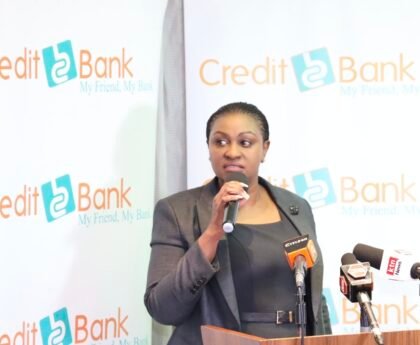Information, Communication and Digital Economy Cabinet Secretary for Eliud Owalo has attributed low investments in Africa’s ICT sector to outdated laws.
According to Owalo, harmonization of better ICT policies in the continent are key to attracting the much needed investments to allow rapid growth in the sector.
He singled out policies such as the now repealed 30pc local shareholding rule for foreign companies to invest in Kenya’s ICT sector as a hindrance to foreign direct investment.
“In Kenya, for example, we have managed to waive the 30pc local content requirements that necessitated that ICT companies must have 30pc local ownership. What is the purpose of having a law that impedes foreign direct capital investment? That is the direction that we need to go as Africa, making sure that there is foreign direct capital investment while at the same time also protecting our own local interests as Africa,” said Owalo.
This comes as Kenya targets to increase increase investments to expand ICT infrastructure to support the digital economy.
“We are also encouraging more players to come up with what we call digital platforms. These are new spaces, that we must ensure that Kenya and Africa as a continent also have digital platforms, which are local and indigenous, and be able to contribute to the Kenyan and the African economy,” added John Tanui, ICT and Digital Economy Principal Secretary.
According to Kenya’s ICT Authority, while African innovators continue to roll out new products and services, they are unable to scale and secure capital to grow beyond set niche markets a factor that has seen many innovators sell off their innovations.
“The most important thing that we need to do is to set up policies that support and ring-fence our innovators, because what has been happening is that most of our innovators start good solutions, and then they sell them for a dime to foreign investors,” added ICT Authority CEO Stanley Kamanguya.
Africa’s digital marketplace requires good enabling policies, laws, and regulations, cutting across borders and aligned with AU’s Agenda 2063, which will attract more foreign investment while empowering the continent’s innovators.
To enable the harmonization of these polices Kenya is hosting the Connecter Africa Summit scheduled for later this month.
“Anything and everything that we are doing as African countries must be aligned to a Africa Union’s (AU) Agenda 2063. We need to think together as Africa while aligning to the overall policy framework, which is the AU agenda 2063. Africa can be transformed when leveraging technology into a continental digital marketplace, which is boundless once we have good enabling policies, laws and regulations that facility database,” Said CS Owalo.
The Agenda 2063 aims to put in place policies and strategies that will lead to transformative e-applications and services in Africa; especially the intra-African broadband terrestrial infrastructure.
The Summit will act as a platform where African leaders can position the African tech agenda in readiness for the UN Summit of the Future to be held in September 2024 and determine their role in green technology and governance of generative AI for African realities.







